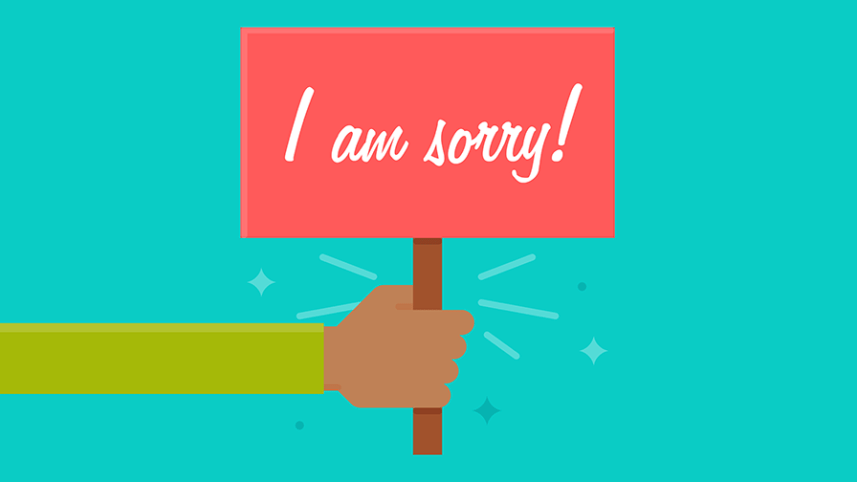The power of apology

When we have wronged someone, we often regret our actions until we have sorted it out and apologised to the person whom we knowingly or unknowingly hurt, especially when we see he or she is suffering in front us. If our apology is accepted, we feel forgiven and can therefore forgive ourselves much more easily.
Five reasons why apologising to another person is so important
1. Apologising to another person shows respect
2. It shows you care about the other person's feelings
3. It shows you are a considerate person who is capable of empathising with others
4. It shows you are capable of taking responsibility for your actions
6. By apologising to another person, you disarm him or her. The other person no longer feels that you are a threat and your apology often pacifies the person
Four main things people apologise for
1. Regret from causing someone to suffer and the wish to lessen or end the other person's pain
2. To relieve oneself of a guilty conscience
3. To save or restore a relationship
4. To escape punishment or in order to "look good" to others
Importance of receiving an apology

If we are angry with someone, it makes sense that our body will be tenser and our blood pressure will be higher. When we receive an apology and the respect that goes along with it, our anger usually decreases. When people apologise we no longer view them as a personal threat.
Having those who have wronged us apologise for their actions is one of our deepest desires. When we do not receive the apology, we feel cheated and are unable to let go of our anger and resentment. Receiving an apology from those who have hurt us doesn't reverse the damage, but helps immensely by relieving us from the pain it caused.
The positive impact of accepting an apology
When we accept a person's apology we not only relieve that person from his or her guilt, but we grant ourselves a chance to lessen our resentment. By accepting an apology we also express the following:
1. Recognition that the other person feels regret for what he or she did
2. Belief that the other person is truly sorry and will make every attempt to not repeat the action
3. Willingness to understand and have compassion for the wrongdoer
4. Desire for reconciliation
5. Willingness to forgive
The importance of asking for an apology

Not speaking up when someone treats you with disrespect, inconsideration, or cruelty is equivalent to giving that person permission to treat you poorly. When we ask for an apology, we not only ask the person to say he or she is sorry, but also to:
1. Acknowledge the pain he or shecaused
2. Express regret for causing such pain
3. Take responsibility for his or her actions
4. Make amends or express his or her intention to not repeat the act
In conclusion it can be said that, an apology is more than just saying "I am sorry." It is a statement of recognition of the pain that was caused, an expression of regret or remorse for what was done, an acknowledgement of responsibility, a desire for reconciliation, a validation of the other person's perception, and last but not the least, a plea for understanding, compassion, and ultimately, forgiveness.
The writer is the Head of HR & Admin at Grameen Telecom Trust



Comments